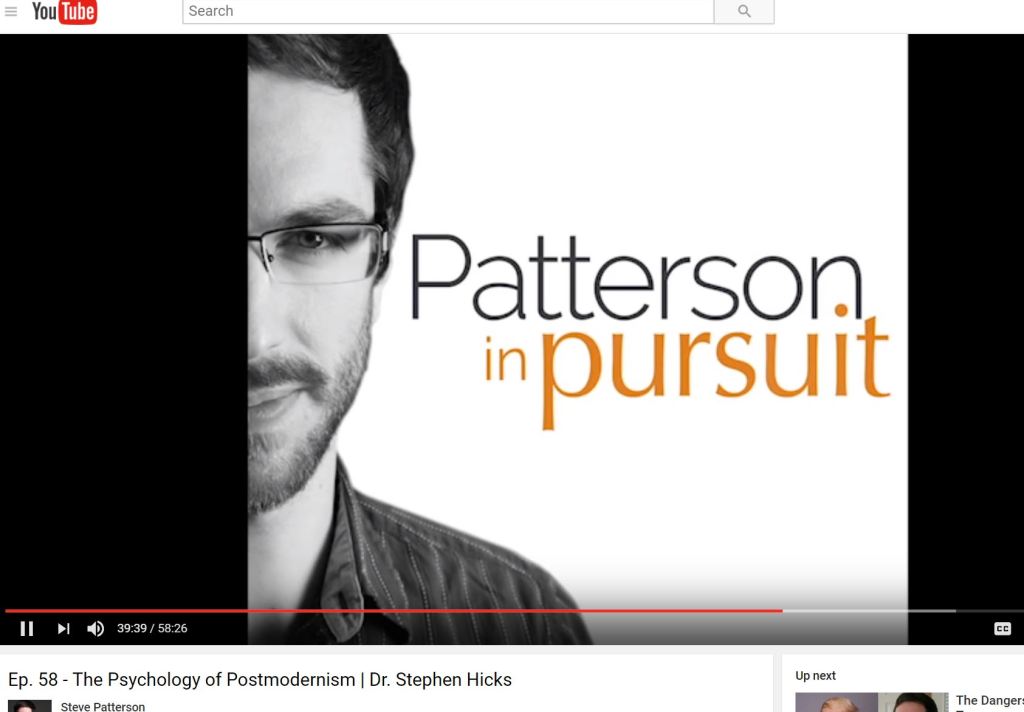What happens when one meets a tension or outright contradiction in one’s thinking? How do we evaluate those who believe or at least express positions like “There is no truth” or “All beliefs are subjectively relative”?
In our first conversation, Steve Patterson and I discussed the nature and origins of postmodernism, including thinkers such as Michel Foucault and Richard Rorty.
In our second discussion we picked up the conversation at that point, along the way discuss empiricism and rationalism, pragmatism, passive religious acceptance, the nature of meaning and the origins of logic, objective relativity, and various psychological and existential responses possible to contradiction. Thinkers discussed include Parmenides, David Hume, Immanuel Kant, G. H. Hardy, and Nelson Goodman.

John Galt: “To arrive at a contradiction is to confess an error in one’s thinking, to maintain a contradiction is to abdicate one’s mind and evict oneself from the realm of reality.
“Reality is that which exists, the unreal does not exist; the unreal is merely that negation of existence which is the content of a human consciousness when it attempts to abandon reason.”